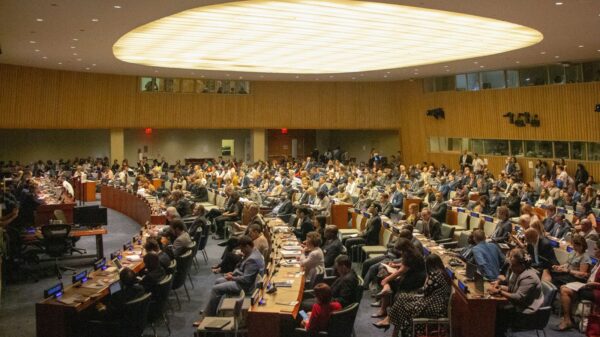As the March on Washington for Jobs and Freedom (MOW) returned to the nation’s capital for its 60th commemoration and iteration, attendees and national leaders called attention to the importance of remaining committed to the struggle for civil liberties and human rights.
On Aug. 26, thousands of attendees from across the nation and throughout the world traveled to Washington D.C., for the 2023 MOW. The event was convened by the Rev. Al Sharpton, the National Action Network and the Drum Major Institute.
“Today was a day to show our strength. Thousands of you have come 60 years later to say that we are the continuation of a movement,” Sharpton said to the crowd in Washington D.C.
“60 years later we are facing Affirmative Action being suspended and there are people that are trying to go after businesses, as well as diversity in large corporations,” he said. “I want to announce that we will fight back… let us march in the name of the dreamers.”
Approximately six decades after people walked down Constitution and Independence Avenue in pursuit of civil rights, members of the American public and international stakeholders alike argue that many social and economic conditions remain the same for America’s disadvantaged populations.
The march was an intergenerational event that included elders and young people who attended previous marches in Washington, in addition to families and students from across the country.
“Events like this [are important] because by just coming out, we are showing people that we’re a unified group,” Aileen Pointer, a junior television and film major from the Bronx, New York, told The Hilltop while volunteering for the MOW.
“Some [Black] people have their own separate businesses, but if you’re not doing things together [in American society] there’s really no point,” Pointer said.
The events of 1963 served as a catalyst for the passage of the Civil Rights Act of 1964 and the Voting Rights Act of 1965.
Rebbie Davis, a junior English major from Chicago, volunteered at the MOW with aspirations to be a civil rights lawyer. Davis believes that 60 years later, Black Americans are marching and demanding rights similar to leaders in prior generations.
“I think people might like to think that white supremacy has been eradicated, but it’s just been closeted,” Davis said. “It’s even harder to fight now because of things like nepotism and other forms of discrimination within big corporations.”
As the MOW’s final speaker in 1963, Dr. Martin Luther King Jr. delivered powerful remarks that were critical of imperialism, international racism and colonialism in all forms, and in support of racial and economic justice, in what is now known as his “I Have A Dream” speech, a phrase absent from its initial draft.
“One hundred years later [after the formal abolition of slavery] the Negro still is not free…the Negro is still languishing in the corners of American society and finds himself in exile in his own land…In a sense we’ve come to our nation’s capital to cash a check…,” Dr. King said during his timeless remarks at the MOW.
Despite policy changes that have been enacted in the U.S. throughout the last 59 years, Black Americans and other disadvantaged groups continue to experience the effects of institutional and overt racism, as the civil rights struggle has become a fight for human rights.
Martin Luther King III uplifted this issue during his remarks at the 2023 march.
“As I stand here today…I am very concerned about the direction our country is going in. Instead of moving forward, it feels as if the country is going backwards,” Martin Luther King III said to the crowd at the Lincoln Memorial.
“As you know my mother and father dedicated their lives to embracing love and embracing the goodness in people…We need to all be engaged [and my father] would probably say ‘now is the time,’” King said.
Members of the NAACP student groups from states across the South traveled via bus to attend the 2023 iteration of the MOW.
Kala Smith, originally from Lincoln, Florida, is a senior pre-occupational therapy major at Florida A&M University and shared her thoughts on what the march means to her.
“We are here representing our school, our rights and in solidarity with others at this march,” Smith said.
Historically, it is important to recognize the original organizers of the 1963 MOW. During the 2023 march, public speakers called attention to Bayard Rustin and A. Phillip Randolph, as well as other significant Black Americans and members of the African diaspora who were advocates for human rights and social justice, such as Congressman John Lewis.
As a veteran civil rights activist and founder of the Negro American Labor Council, Randolph, who served as vice president of the American Federation of Labor-Congress of International Organization (AFL-CIO), initially proposed the March on Washington in 1962, and served as a key organizer with social activist Bayard Rustin.
Rustin and Randolph had laid the roots for the March in the 1960s almost two decades earlier between 1941 to 1947 during the March on Washington Movement, which was established to pressure the U.S. government to provide equitable and fair working opportunities for Black Americans and to desegregate the armed forces.













